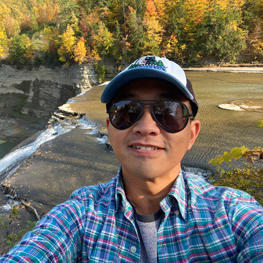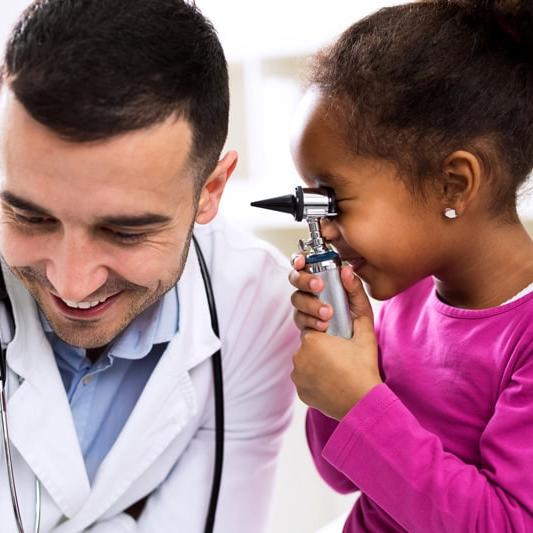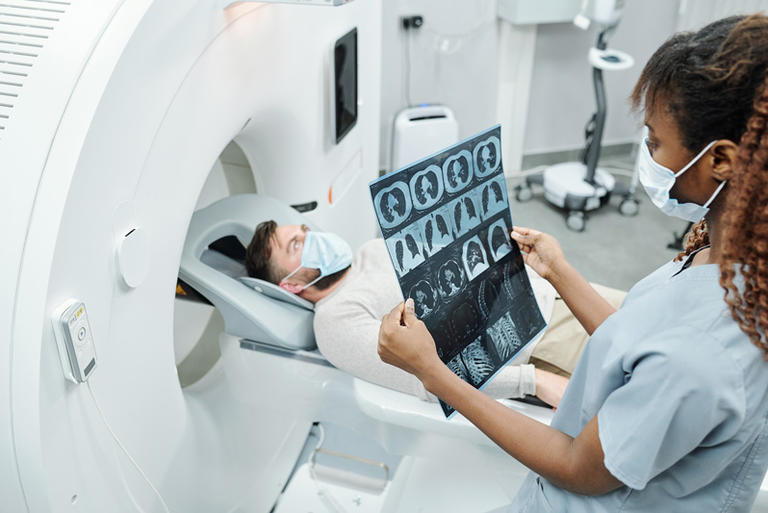Anesthesiologists, also referred to as anesthesia doctors, care for people before, during, and after medical procedures. The specialty includes anesthesia, intensive care medicine, critical emergency medicine, and pain medicine.
If you are considering a career as an anesthesiologist, ask yourself these questions:
- Are you detail oriented and skillful at procedures?
- Are you calm in stressful situations?
- Can you be warm and caring to ease a patient’s anxiety?
- Do you want to keep patients safe and prevent pain?
- Do you love science—particularly pharmacology and physiology?
- Are you curious enough to learn about numerous aspects of anesthetic medicine?
- Do you want to study a dynamic and constantly evolving science?
- Do you want a field that offers professional challenges and many specialized options?
- Do you want an intellectually stimulating and rewarding career?
- Do you want a career in one of the most in-demand fields of medicine?
If your answer to these questions is “yes,” then anesthesiology may be the specialty for you.
The Role of an Anesthesiologist
Historically speaking, anesthesiology is a recent medical specialty. The American Board of Anesthesiology (ABA) was formed in 1938, and the American Board of Medical Specialties (ABMS) approved anesthesia as a specialty in 1941.
Many are curious to know: is an anesthesiologist a doctor? The answer to that question is yes. Doctors certified in anesthesiology play a critical role in patient care: administering drugs for the relief of pain and anxiety reduces or eliminates the stress of invasive procedures on patients, and it also creates a calmer and more proactive environment for a surgical or obstetric care team.
Exactly what does an anesthesiologist do? Before an operation, anesthesiologists prepare the patient, suggest tests or medications, and choose an anesthetic. During surgery and other procedures, they may provide general, local, or regional anesthesia. Anesthesiologists keep patients safe—and alive—by monitoring body functions and administering oxygen, drugs, and fluids. After an operation or other procedure, an anesthesiologist will provide pain relief and other patient maintenance.
Anesthesiologists are trained in internal medicine, obstetrics, pain management, and pediatrics. They have an extensive knowledge of drugs and drug interactions with anesthetic agents, and they are experts at identifying conditions that may complicate surgery. Anesthesiologists may also manage intensive care units and long-term cancer pain, or handle emergency cardiac and respiratory resuscitation. Subspecialties within anesthesiology include:
- Addiction Medicine
- Adult Cardiothoracic Anesthesiology
- Critical Care Medicine
- Geriatric Anesthesia
- Health Policy Research
- Hospice and Palliative Medicine
- Neurocritical Care
- Obstetric Anesthesiology
- Pain Medicine
- Pediatric Anesthesiology
- Sleep Medicine
- Transplant Anesthesiology
- Trauma Anesthesiology
Anesthesiologists are also active in academic circles and participate in conferences and publications dedicated to advancing medical knowledge and therapeutic options.
HOW TO BECOME AN ANESTHESIOLOGIST
To become an anesthesiologist, you must first become a medical doctor by graduating from an accredited medical school*—such as Ross University School of Medicine (RUSM). The steps to a medical degree at RUSM, which is located on the Caribbean island of Barbados, are the same as at United States-based schools: two years of medical science classes and two years of hands-on clinical training. For RUSM students, the medical sciences curriculum is completed on the Barbados campus; the clinical training can be completed at affiliated teaching hospitals in the United States.
During clinical training, RUSM students complete core rotations in internal medicine, surgery, pediatrics, family medicine, obstetrics/ gynecology, and psychiatry. It is up to each student, then, to select elective rotations to fulfill their clinical requirements. Students can round out their remaining clinical education in any of 40 specialty elective areas (including anesthesiology).
During the fourth and final year of medical school, students prepare for the next step in their medical education: residency. At RUSM, the Office of Career Advisement (OCA) helps students determine which residency specialty—such as anesthesiology—suits them best. The OCA then helps students negotiate the National Resident Matching Program® (NRMP®)—a placement system which medical students who want to obtain licensure in the United States use to “match” with a medical residency. Residencies are required to become a licensed physician, and they last from three to eight years (an anesthesiology residency is three to four years). In 2021, RUSM had a first-time residency attainment rate of 92 percent for 2020-2021 graduates, a match percentage rate comparable with the overall match rate (93 percent) for medical schools in the United States.
In recent years, RUSM MDs have matched with anesthesiology residencies in such hospitals as Baystate Medical Center in Massachusetts; John H. Stroger, Jr., Hospital of Cook County in Illinois; Maimonides Medical Center in New York; and the Mayo Clinic in Minnesota.
After residency, qualified candidates are certified by the American Board of Anesthesiology® (ABA®). A board-certified anesthesiologist may then become a Fellow of the American Society of Anesthesiologists® (FASA®). Doctors who want to subspecialize in a specific area of anesthesiology must take additional fellowship training approved by the Accreditation Council for Graduate Medical Education.
MEET AN ANESTHESIOLOGIST
Kyung Ji, MD, a 2011 RUSM graduate, is an assistant professor of anesthesiology and internal medicine at University of Rochester Medical Center in Rochester, New York. We asked Dr. Ji to describe his role as an anesthesiologist.
Q: Why did you decide to go into your specialty?
A: I had a very good mentor who happened to be an anesthesiologist. That was probably the biggest reason why I chose anesthesiology. Besides, anesthesiology training offers a unique set of knowledge and skills. For example, knowledge of various medical problems leading to surgical interventions; very real and personal understanding of physiology, hemodynamics, airway, and medical/ surgical crisis management skills; and access to expertise in many interesting procedures.
Q: Any advice to medical students considering the specialty?
A: Here are 10 pieces of advice:
- If you’re attending RUSM, enjoy your basic science time in Barbados. Please understand this is a once in a life opportunity to live in paradise.
- Study hard and score well on exams. (You should be doing this regardless of what specialty you're thinking about.)
- Never fail a United States Medical Licensing Examination® (USMLE®) Step exam!
- Research programs with a history of accepting FMGs [foreign medical graduates]. You might want to reach out to RUSM Alumni personnel to do the research for you. Ask them to obtain contacts and try to reach out to all of them. Talk to whoever responds on the phone and ask for advice.
- Try to secure an elective rotation in one of those programs. Your contacts from #4 may be able to help you with this.
- Try to read the "baby miller" [Basic Anesthesia] textbook prior to doing an elective rotation. Your contacts from #4 may be able to help you choose which chapters to read.
- Impress the program leadership during your rotation so you can ask for a letter of recommendation. By this time, you should have a mentor and not just contacts.
- Stay kind, humble, and hungry.
- Apply for residency broadly.
- Get into residency and continue to be awesome!
Q: What’s the most rewarding part of your job?
A: There are many and I can't really pick one that's the most rewarding. I love it when laboring moms feel immediate pain relief after successful epidural placement. I love it when a patient with a high level of anxiety before surgery feels better after I talk to them. When my knowledge, experience, and skill contribute to saving one's life, I feel proud to be a doctor.
A Career in Anesthesiology
Anesthesiologists may work in a pain clinic, hospital, or medical office, and some have their own private practice. Anesthesiologists spend much time in surgery or assisting in childbirth or other medical procedures. Time is also spent seeing patients before and after surgery as well as planning anesthetic procedures or providing long-term treatments for chronic pain. Meetings and administration tasks absorb time, and hours are also spent consulting with other specialists, doing research, studying, and teaching.
What is an anesthesiologist’s typical work week like? Some anesthesiologists work a typical 40-hour week, while others work much more through 12-hour shifts or on 24-hour in-house call. Anesthesiologists are not typically on-call while away from work, however, and they may have several weeks of free time to compensate for long work weeks.
Because anesthesiologists are needed for a vast number of surgical and other procedures, they can have a great impact on the individual lives of patients as well as overall community health.
Demand for Anesthesiologists
The demand for anesthesiologists is as certain as the need for care during surgery, childbirth, and other procedures. In other words, anesthesiologists will always be needed. And anesthesiologists—like doctors in all medical fields—are an aging population. As those doctors retire, there will be an increasing shortage of anesthesiology specialists. In July 2020, an Association of American Medical Colleges report showed that one third of United States physicians are age 60 or older, and well over half—57 percent—are over 50 years old.
Take the next step on your path to a specialization in anesthesiology: apply for admission to Ross University School of Medicine.
Related resources:





